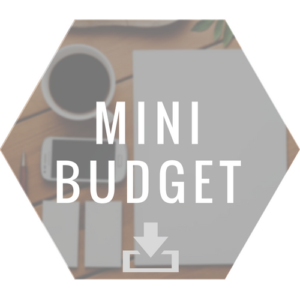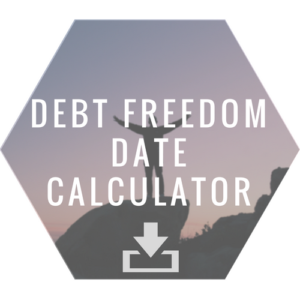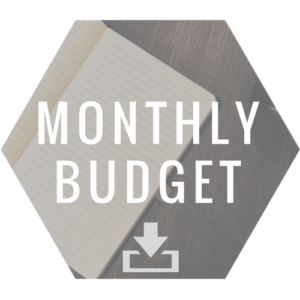Taxes
What Should I Do With My Tax Refund?
What are you going to do with your tax refund?
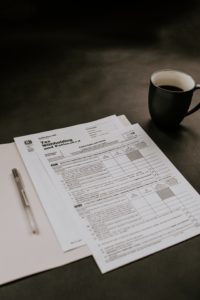 While tax season may seem like a distance memory to some, others may been filing today. 2020 has brought about a lot of changes, one of which was an extension for tax filing from April 15th to July 15th.
While tax season may seem like a distance memory to some, others may been filing today. 2020 has brought about a lot of changes, one of which was an extension for tax filing from April 15th to July 15th.
If you’re getting a refund what exactly should you do with this “extra” money this season? Save it? Pay off a debt or two? Invest it? Spend it? The possibilities might seem endless!
However, I would encourage you to plan out your refund BEFORE you ever get it.
STEP 1 Before You Spend It, Plan It
I used to have my tax refund spent sixteen different ways by the time it actually arrived. It was assigned to pay for Christmas, vacation, clothes, credit card bills, student loan payments, car payments, a new appliance, a new electronic device, etc.
In addition to having spent the refund sixteen different ways, I had already made all of the purchases via credit cards or other forms of loans.
When the refund actually arrived, it was woefully inadequate to cover all of my crazy spending.
Talk about feeling miserable! Is anyone reading this feeling my pain, or am I the only one who has done this?
When I decided once and for all to take control of my finances, I realized the root cause of my problem.
What was the root cause and the reason for all of my crazy spending?
I did not have a PLAN!
Before you spend your tax refund, plan out the spending! I highly recommend that you use the Mini-Budget Form (Excel) to plan your spending. Enter the amount of the tax refund at the top, and spend it to exactly zero. Remember: INCOME – OUTGO = EXACTLY ZERO™.
Start planning now – BUT don’t start spending just yet. We are still in the planning stages.
Next, we’ll cover where the money should go!
STEP 2 Build the Wall
Next, you need to build a wall of protection! When maximizing your tax refund, there are three categories that can help you build this wall:
(1) Save it, (2) Reduce Debt, (3) Invest it
When you’re trying to decide where to spend the money you get from a refund I typically refer back to the I Was Broke. Now I’m Not. Ladder. By identifying where you are on the ladder, you can pretty easily decide on the best way to spend your refund this year.
FIRST: Save It
One of the biggest reasons people fall off of the “I’m Going to Achieve Debt-Freedom” wagon is because they do not have any savings. Life is going to happen and it will cost money! If you do not have any savings you will remain broke.
Do you currently have money saved for emergencies or Known, Upcoming Non-Monthly Expenses (Christmas, vacation, property taxes, annual memberships, homeowner’s association fees)?
Before attacking debt or investing, you need to save money! Start with saving at least one months of expenses. How would it feel to have one month’s of expenses JUST SITTING THERE in your bank account?
I remember the day that this happened – and I did not have to mail it out to a creditor!!
If you do not have savings, use your tax refund to fill it up! Don’t have an account? Get great interest rates from these banks:
After you’ve established your emergency fund you should make sure to save for your Known, Upcoming Non-Monthly Expenses! These are expenses that we KNOW are going to happen.
Known, Upcoming Non-Monthly Expenses like Christmas, vacations, property taxes, building fund pledges, quarterly insurance premiums, annual health club membership fees, annual golf club dues, and homeowner’s association fees. If you have not saved for these expenses, they will completely derail your financial plan!
It is AWESOME to have money saved up in advance for vacation and Christmas!
SECOND: Reduce Debt
Don’t skip ahead to this step! Make sure you have savings first!
Too many people race past the previous option and use their $3,000 tax refund to pay off $3,000 of a $5,000 credit card. They have no Emergency Fund, they haven’t saved for Known, Upcoming Non-Monthly Expenses, and now they have just spent all of that money on a credit card.
Even if the $3,000 paid off the credit card, it is still not worth it if one does not any savings! Think about it this way. If the $3,000 credit card had a monthly payment of $100, how long will it take to get that $3,000 back into the bank? THIRTY MONTHS! Not worth it.
BUT, if you have taken care of the Emergency Fund and have saved for your Known, Upcoming Non-Monthly Expenses, it is time to attack the debt! Pull up the Debt Freedom Date Calculator (Excel) and calculate your own Debt Freedom Date! Make some debts leave your life!!
THIRD: Invest
If you have already saved money and reduced or eliminated your debt, your next step is to invest. Investments are the KEY to funding your big time plans, hopes and dreams! Investing is simply using your money and possessions to create more money and possessions. The goal for any investments is to gain more in return.
To learn more about the investments I’ve made this year check out the Monday Money Tip Podcast Episode #87.
STEP 3 Fulfill Some of Your Dreams!
Since the word FUN is in the middle of refund, make sure to have a little fun and fulfill some of your dreams!
Your tax refund could allow you to be generous and bless others, have a fun day with your family, or contribute to funding a dream.
What dreams do you have? What will it take to accomplish them?
Here are some good questions to ask yourself to fire up your dreams again:
- What opportunities do you want to provide to my children?
- What trips do I want to take?
- Who do I want to bless? What do I want to bless them with?
- What type of house do I want to live in?
- Where do I want to live?
- What career(s) do I want to pursue?
- When do I want to retire?
My passion is to teach you how to live a fully funded life so that money doesn’t keep you from living your dreams. In my book, 20/20 Money, I talk more in depth about how to make your dreams a reality.
STEP 4 Should You Even Receive a Tax Refund?
This one will be argued until the sun fizzles out, but here are my thoughts.
If you have proven to yourself that you can abide by your written budget every single month for several months, then you could consider increasing your W-4 exemptions so that you come close to breaking even at tax time.
Because you have demonstrated the ability to stick to your written plan, you will be able to take full advantage of your money instead of giving the government an interest-free loan all year long.
BUT, if you have NOT proven to yourself that you can follow a written budget, I would highly consider leaving your exemptions as is. Focus on getting your money management under control by planning your spending using a BUDGET FORM from the “TOOLS” page.
You should keep it the way it is until you have sufficiently proven to yourself that you are a good manager of money. Think about how horrible it would be to blow all of that extra money in each paycheck and then not even receive a tax refund check! Awful!
STEP 5 What Do I Do if I Owe Money?
Maybe you’re reading this, and thinking I wish that was me. I wish I was receiving a refund, but instead I’m going to owe money.
Many people who have delayed filing have probably done so knowing they are going to owe money. Some of you have already started to save money in preparation for this, but others may be wondering where or how you are going to come up with extra funds.
Check out Episode #83: Money Saving Tips and Episode #106: Buying and Selling Online of the Monday Money Tip Podcast if you need some ideas on how to save or earn some extra money for your tax payment.
Maximizing Your Tax Refund
As I shared before, I used to spend my tax refund sixteen different ways BEFORE I ever received it! What a miserable feeling it is to receive that great tax refund check and turn around and mail it out to creditors. Anyone identify with that feeling?
But, I also know what it is like to receive a great tax refund check and be able to KEEP IT ALL! What a great feeling! It is a reward for sound money management.
Why not make this year be THE YEAR that you take control of your finances?
Use this tax refund to make sure you’re on the right track financially. Stock up your emergency fund, pay off debt, and start funding your dreams. Whatever you decide to do, do it intentionally. Write up a plan, and allocate the money according to that plan.
For more tips about how to maximize your tax refund check out Episode #82 on the Monday Money Tip Podcast.
February 2020 Update From I Was Broke. Now I’m Not.

It’s tax season! Are you getting a refund? Discover ways you can maximize your tax refund this year. Don’t let that refund disappear without making the impact you wish or thought it could. Find out what tips we recommend.
**CLICK HERE FOR TIPS FOR MAXIMIZING YOUR TAX REFUND

It’s easy to start the month out well by preparing a budget, but then life happens, and by the end of the month, the budget has been overspent. Check out ways you can STOP overspending today!
**CLICK HERE TO LEARN HOW TO PREVENT OVERSPENDING

Looking to stay consistent with your finances? Find out how you can avoid the up-and-down cycle and make a real change this year.
**CLICK HERE TO SEE WHY YOU SHOULD HAVE A COACH

We’re entering month two of 2020. How are you doing with your goals and budget? Check out some ways you can make 2020 your best financial year yet!
**CLICK HERE TO HAVE THE BEST YEAR YET
DON’T FORGET YOUR FEBRUARY BUDGET
If you still need help creating this month’s budget, check out our free budgeting tools HERE.
Don’t forget these expenses in your budget:
- Super Bowl Snacks
- Valentine’s Day
- Taxes!
- Increased Heating Bill
- Christmas 2020
- Summer Vacation Savings
Maximize Your Tax Refund
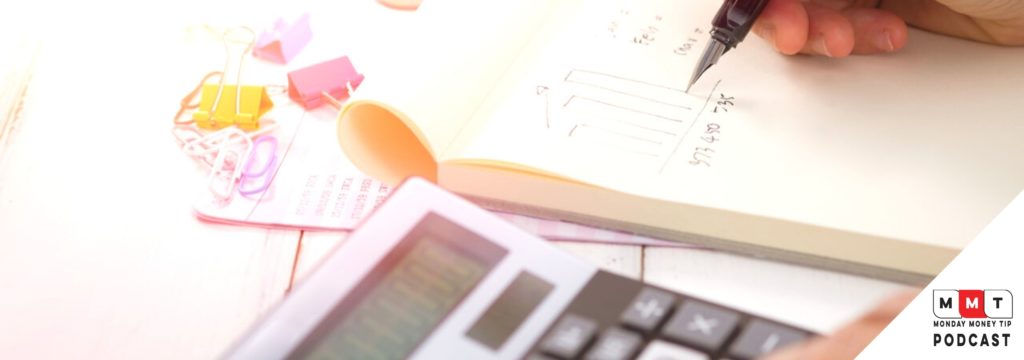
It’s going to be a good day!! Who’s ready to talk about TAXES?
In this episode of the Monday Money Tip Podcast, we’re talking about how to maximize your tax refund. Perhaps you receive a big tax refund, but somehow it disappears without making the impact you wish or thought it could. In this episode, we’re providing some tips you can use to maximize your tax refund. In our Current Money Events segment, we’re sharing about good financial habits that you can create as the year is getting started. Our success story comes from Shawn and Jenn, who are completely debt-free going into 2020, minus the mortgage, after battling several rounds of debt (including a $25k loan for In Vitro, medical expenses, deductibles, and credit card debt)! Congrats Shawn and Jenn!
Find more episodes of the Monday Money Tip Podcast HERE. Please let us know what you think by leaving us a rating!
Email info@iwbnin.com to ask questions or share success stories.
NOW AVAILABLE TO DOWNLOAD:
iTunes
Stitcher
Spotify
Website
YouTube
About the Episode:
- Today, we’re answering: “Every year, I receive a big tax refund. It always seems like a big amount, but somehow it disappears without making the impact I wish or thought it could. Can you provide some tips I could use to maximize my tax refund?”
- In our Current Money Events segment, we’re sharing about good financial habits that you can create as the year is getting started.
- Our success story comes from Shawn and Jenn, who are completely debt-free going into 2020, minus the mortgage, after battling several rounds of debt (including a $25k loan for In Vitro, medical expenses, deductibles, and credit card debt)!
Resources:
20/20 Money: Gaining Clarity For Your Financial Future
Free Financial Tools
Online Banks
IWBNIN Ladder
See Our Team Live
Video: Debt Snowball
Tax Refund Mini-Budget
I’m Paying What?!?!
WARNING: Participating in the below activity can lead to increased blood pressure, frustration, and possibly anger.
Have you ever given much attention to the deductions from your paycheck?
Here’s what I know. If you don’t personally pay the bill and an expense is paid out of your paycheck before you ever receive it, chances are REALLY HIGH that you will be shocked to discover how much you are really paying!
I challenge you to pull up your paystub from the last paycheck you received in December 2010 and look at how much has been taken out BEFORE you ever received the check.
How much did you pay last year for:
- Federal Income Tax
- Social Security Tax
- Medicare Tax
- State Tax
- Local Tax
- Insurance Premiums
Now take those amounts and divide them by how much you were paid last year. What percent of your pay was taken out to pay for taxes and insurance? After you have taken your heart medicine, would you mind sharing your percentage in the comments?
